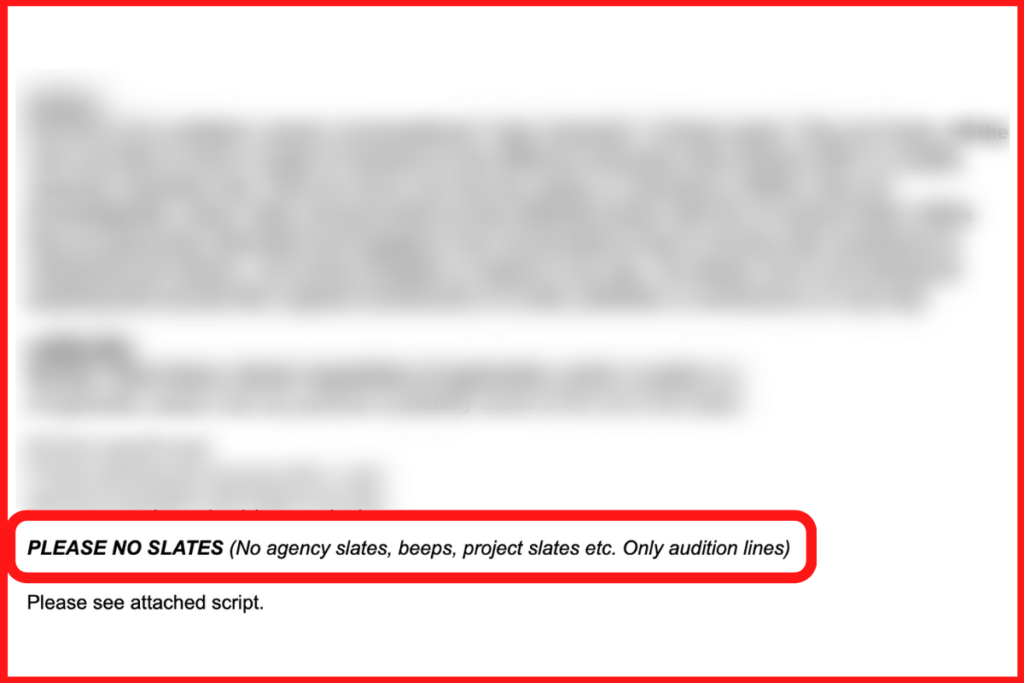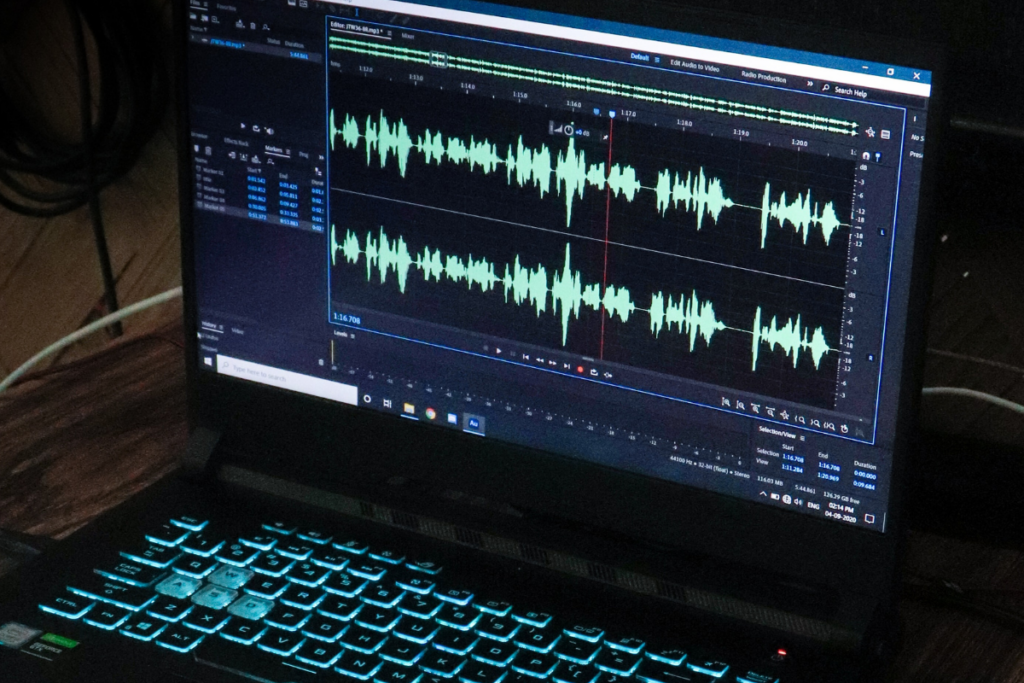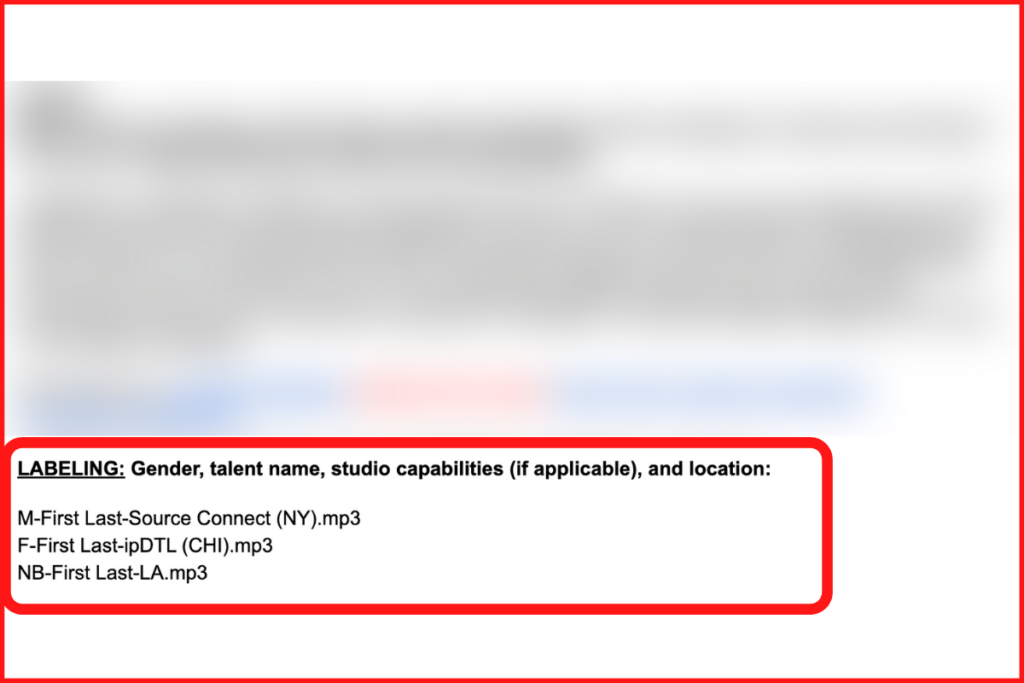When it comes to booking voice over work, it’s not about who has the best voice. It boils down to who auditions best.
While submitting quality auditions relies on a number of extenuating factors (including talent, adaptability… maybe a little luck), there are a few simple things you can do to set yourself up for success.
At the end of the day, the goal is to improve the chances of your audition takes being listened to by the casting director, producer or agency creative in the first place.
Use these audition tips to crush your castings and get booked!
Beginner Audition Tips Even Veteran Voice Actors Should Keep in Mind
As you progress in your voiceover career, these things will become second nature. Beginners don’t stay beginners long!
But the longer you do something, the more tasks you’ll have to juggle. It’s easy to mess something up when you’re in a rush – like mislabeling your mp3.
Little things can make a huge difference in the overall outcome.
So here are nine simple audition tips for beginner voice actors that you’ll still use even after you’ve got some serious experience under your belt.
1. Warm Up
Some voice actors sing in the shower. Some people do lip trills and yoga poses to loosen up. But your vocal warmup doesn’t need to be complicated. Just look at my 2-step warm up.
At the very least, you should read out loud and hydrate.
A lot of what ends up working for you will boil down to trial and error. Experiment and take care of your instrument (your voice). Or at least show it the same respect you’d show a 2011 Honda Civic before driving in winter.
2. Get to Know the Script
Before you even fire up your microphone and step into the vocal booth to record your big audition, spend some time with each new voiceover script. Read through the copy a few times.
It might only take you a couple of tries. And it may take a while to find ‘the music.’

If you’ve ever done a cold read before, then you know:
- It might be possible to make it through a new script while maintaining good diction – and without stumbling.
- But it’s far more difficult to tell a story in a cohesive way, without first studying the overall script.
Even the most dry sales copy is essentially telling a story. See if you can find a way to use your voice to illustrate it in a cohesive way.
This script means something to the production team members that have been working on the project up until this point.
If you can show a mastery of not only the words themselves – but the cadence, flow and how their carefully crafted narrative tells the overall story, they’ll be more likely to choose you for their project.
3. Slate Your Name
A slate is simply you saying your name at the beginning of your voice file (before you read the script lines for your audition).
That’s it.
Easy, right?
You’d be shocked by how many people forget to do this. I forgot to do it a few times at the beginning of my career.
File under: audition tips 101.
It’s VO industry standard operating procedure. It’s expected of you. So do it. Unless…

Sometimes You’ll Be Asked Not To Slate
In the above casting breakdown, they’re asking for audition lines only. No slates.
Lessons here:
- Read (and pay attention to) the breakdown from top to bottom.
- There are formatting preferences (like file labeling, that we’ll cover in a second) that differ from casting to casting.
- Slate your name unless you are specifically asked not to.

4. Record Your Audition Takes Well
What do I mean by that?
- Your audio quality should be good enough that – if the production likes your read – they can insert your audition into their project, and try it on for size (and hopefully book you).
- That means there shouldn’t be a ton of background noise, like an airplane zooming overhead – or your roommate talking on the phone.
Your recording quality should be indicative of what your potential clients can expect if they decide to book you on the job.
Most of that will boil down to the quality of your recording space. Not to overstate the obvious, but your audition space needs to actually be a quiet place.

5. Say Important Words the Right Way
Important words include:
- Company names
- Any word in a company tagline or slogan
- Character names
- Medical terms, diseases or medications
- Ingredients, chemical names, etc.
- Any word that is central to an action that is being narrated or shown
Sometimes it can be tough to know just by looking at those $50 words on paper.
A great technique is to go back to your elementary school training and just sound it out. Practice saying it out loud until it seems natural.
If you’re unsure of proper pronunciation, hop on the internet. Look it up on YouTube. Chances are there’s a video of a doctor correctly saying transaminases.

Consider Your Audience
And sometimes there are words or company names you’d say differently based on what is being represented.
- You’d pronounce ‘Michelin’ one way if you’re auditioning for a tire commercial in the US.
- And completely differently if you’re auditioning for a video targeting a group of international foodies for the Michelin Guide of restaurants.
Same company. Different audience. Different pronunciation.

6. Step Out of Your Comfort Zone
Of all these audition tips, this one is the least defined – but one of the most important.
Trite but true: you never know if you’ll be good at something until you try.
Let’s say you have a couple of voiceover jobs under your belt for automotive commercials. It might be tempting to assume that’s what you’re good at, and call it a day.
And that may, in fact, be your sweet spot – a niche you can zero in on and make some real money. But that doesn’t mean that’s all you can do.
Beginners should try things that make them uncomfortable. That’s where real growth happens.
For example, I never knew I’d be good at ADR voice matching until a former agent told me to stop being a baby and record an audition I wanted to pass on, but she thought I could nail.
I stopped being a baby for 5 minutes. She was right. Now it’s something I do.
Start Your Career as a Voice Actor
Voice Over: The Ultimate Beginner’s Guide
7. Record Multiple Takes
There are quite a few reasons it’s best for voice actors to record and submit more than one take of the script.

The common wisdom is that you should show off your range as an actor. And that isn’t wrong.
But I’m here to tell you about another, more important reason (one we already lightly touched on)…
- A common tactic among agency creatives, producers and audio engineers who want to see if your voice works in their project is to splice your audition takes into their project.
- This usually happens once they’ve got their ‘selects’ (favorite voice actors) chosen.
- You may have NAILED the audition in your first take. But you rushed through the third line. Or you mumbled a word. Or said the company tag line with weird inflection.
- If they’ve got a second take to work with, they can grab the line / phrase / tagline from a second take and splice it in so they can present it to their clients for approval.
Want to know other important reasons for recording multiple audition takes? Check out my class for beginner voice actors where we’ll break those reasons down. Including – oddly enough – when it’s best to only submit one take 🤔
8. Label Your File the Right Way
I don’t want to harp on this one.

But many audition breakdowns will have specific instructions on how to label your sound files.
This means what information is included, in what order in front of the .mp3.
For example: YourName_CompanyName_AVO.mp3
Common formats will have you list your name, gender, the particular role, location, self record abilities – even specific dates you might not be available to record.
Be sure to follow the guidelines on which order you should list that information as well.
If you label it wrong:
- Best case: some poor production assistant gets stuck re-labeling it (and resenting you for not doing something so dang easy).
- Worst case: since your file was named something randomly generated like 0481735653454_computer_ddrive.mp3, the producers or casting director will never find it to even listen to your audition takes in the first place.
I get it. You just finished recording the best audition, and you’re excited to share it! I respect that enthusiasm.
Just take a last look at the casting breakdown to make sure there isn’t something specific you need to name that file before sending it off.

9. Don’t Wait Too Long
If you’ve been given a submission deadline two-days from now, it’s easy to assume you can audition at your leisure.
And that’s kinda true.
- Voice acting does have some flexibility baked in to the whole process. Especially nice when you get that audition email four hours into a shift at your day job.
- But sometimes, a creative director is looking for THE ONE. And, as soon as they hear that voice, they may pull the trigger and book that voice actor – even though there’s technically a day and a half left before submissions close.
Submitting early on in the casting process gets your files in front of the decision makers – and frees you up to track down more potential voiceover work for yourself.
What about you? Do you have any audition tips that would be beneficial for beginner voice actors. Share your best audition tips and tricks in the comments section below!
And check out these other things beginner voice actors should know:
- 5 Things You Should Know Before Becoming a Voice Actor
- Why Commercial Voice Over Offers the Most Opportunities to Voice Actors
- The One Thing Successful Voice Actors Have in Common
- 3 Voice Acting Myths, Debunked (You Don’t Have to Live in New York City!)
- Why You Should Start Your Voice Acting Career Today
Curious about how to start your voice acting career? Want to learn more about voice acting and the things beginners should know about the voice over industry? Bonus tip: Bring your natural talent and check out my class for beginners!



Leave a Reply